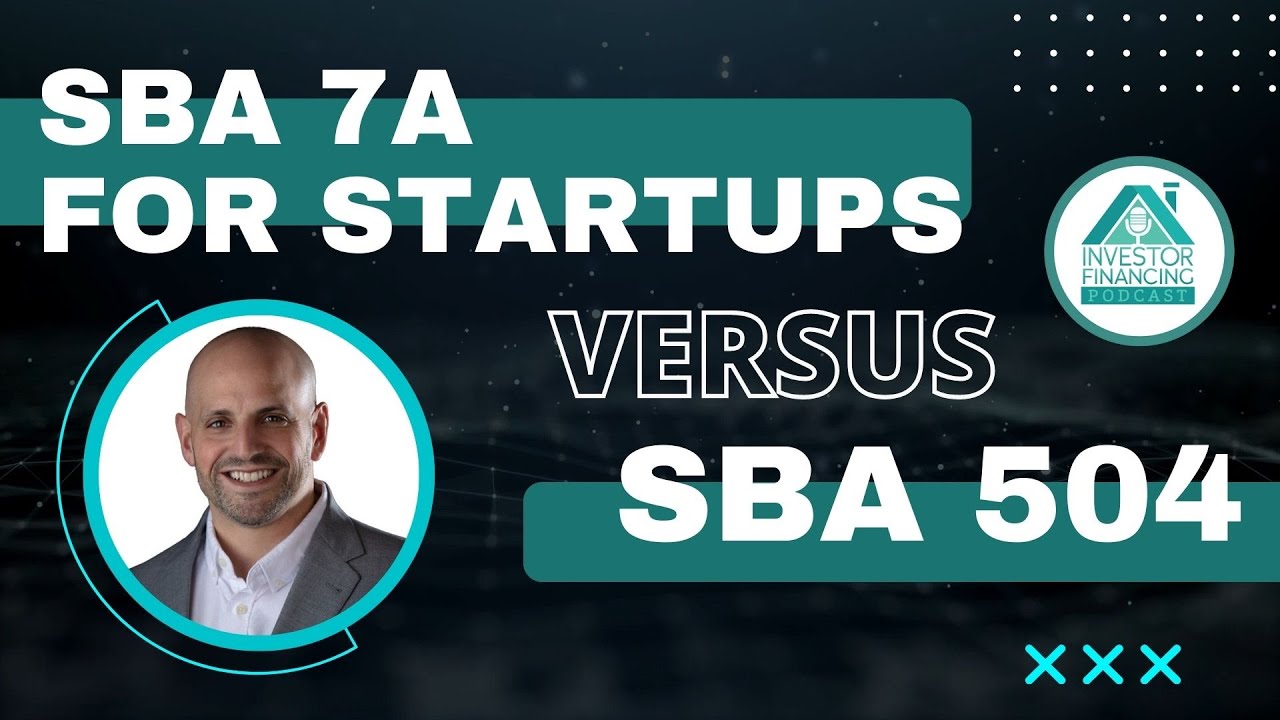
Welcome to a deep dive into the world of SBA financing, specifically comparing the SBA 7a and SBA 504 loan programs. Understanding the nuances of these loans is crucial for entrepreneurs, especially startups looking to secure funding for their ventures. In this blog, we’ll explore why the SBA 7a might be the better option for startups, and how it can serve your business needs more effectively than the SBA 504.

Photo by AbsolutVision on Unsplash
Understanding SBA Financing
SBA financing is an incredible resource for business owners and those looking to invest in commercial real estate. The Small Business Administration (SBA) offers various loan options, but two of the most popular are the SBA 7a and SBA 504 loans. Each has its advantages and specific use cases, especially for startups. Let’s break down what makes these loans unique and why one might be more suitable than the other for your situation.

Photo by Kyle Loftus on Unsplash
Why Choose SBA 7a for Startups?
When it comes to startups, the SBA 7a loan often stands out as the more advantageous option. Here are two primary reasons why this loan may be better suited for new businesses:
- Higher Loan to Cost Ratio: The SBA 7a allows startups to secure up to 90% loan to cost, compared to the 85% offered by the SBA 504. This higher leverage can be critical for startups that require more funding upfront to establish their operations.
- Shorter Prepayment Penalty: The SBA 7a loan features a three-year prepayment penalty, which is significantly shorter than the ten-year declining prepayment penalty associated with the SBA 504. This flexibility is beneficial for startups that may wish to refinance sooner to access equity as their business grows.
Exploring SBA 504: When It’s Beneficial
While the SBA 7a has clear advantages for startups, the SBA 504 loan is not without its merits. This loan is designed for long-term financing of fixed assets, which may be attractive for specific business models. Here’s what you should know:
- Longer Terms: The SBA 504 is structured to support longer-term investments, making it suitable for businesses planning to hold commercial properties for a longer duration.
- Special Purpose Properties: If your business involves purchasing properties that are considered “special purpose” (like a bowling alley or gas station), the SBA 504 may offer specific benefits, albeit with a reduction in loan to cost.

Photo by Naomi Hébert on Unsplash
Special Purpose Properties and Loan Options
When considering SBA financing, it’s essential to understand how different property types can affect your loan options. Properties classified as “special purpose,” such as campgrounds or movie theaters, present unique challenges and opportunities.
For instance, the SBA 504 reduces the loan to cost ratio for special purpose properties to 85%, while the SBA 7a does not impose such restrictions. This distinction can significantly impact your financing strategy, especially if you’re looking to maximize your funding.

Photo by Étienne Beauregard-Riverin on Unsplash
Partnering SBA 504 with SBA 7a
One innovative strategy for startups is to consider a partnership of the SBA 504 and SBA 7a loans. This approach allows you to leverage the benefits of both loans, tailoring your financing to your specific business needs.
For example, if you’re acquiring a property and planning significant renovations, using the SBA 7a for initial funding can offer the flexibility needed to grow your business quickly. After establishing a solid foundation, transitioning to the SBA 504 could provide long-term stability for your real estate investment.

Photo by charlesdeluvio on Unsplash
Discovering the Best Financing Option
Choosing the right financing option requires careful consideration of your business goals and financial situation. It’s crucial to have a thorough discussion with a financing expert who can help you navigate the complexities of SBA loans. During this discovery call, you can explore the various options available and determine which loan structure aligns best with your plans.
Whether you’re looking to buy your first property or expand an existing portfolio, understanding the ins and outs of SBA financing is essential. If you’re ready to take the next step, consider booking a call with an expert to clarify your financing strategy.

Photo by Adeolu Eletu on Unsplash
Maximizing Your SBA Financing Potential
One of the most significant advantages of SBA financing is its flexibility and the potential for high loan amounts. For instance, the SBA can enable you to access up to $16.5 million when you strategically utilize both the 504 and 7a loans.
By understanding the specific benefits of each loan, you can create a comprehensive financing plan that will help you achieve your business objectives. Remember, there’s no one-size-fits-all solution, and each situation is unique. Take the time to evaluate your options thoroughly.

Photo by Scott Graham on Unsplash
Conclusion
In summary, both the SBA 7a and SBA 504 loans have their place in the world of business financing, but for startups, the SBA 7a often provides the flexibility and higher leverage needed to get off the ground. Whether you’re looking to purchase commercial real estate or expand your existing business, understanding these options will empower you to make informed decisions.
For more insights into SBA financing, creative business acquisitions, and franchise investing, check out the Business Ownership Academy. If you have further questions or need personalized advice, feel free to reach out here.
Have a question? You can ask me anything! I’m here to help you navigate the complexities of financing and support your journey as a business owner. Together, we can find the best path forward for your unique situation.

Photo by Pavan Trikutam on Unsplash
Thanks for exploring the world of SBA financing with me today! If you’d like to stay updated with the latest insights and strategies, join my email list for weekly updates. Until next time, keep pushing forward!


